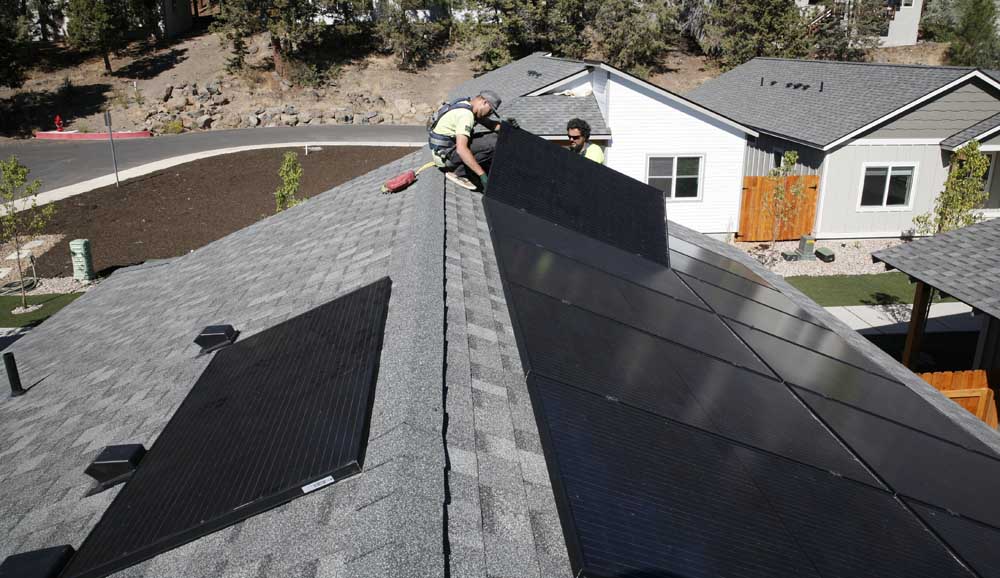Bend environmental committee recommends project priorities to City Council
Published 2:51 pm Tuesday, October 26, 2021

- Gavin Ames, left, and Travis Trondle with Sunlight Solar Energy Inc. work on solar panels on a home in Bend in September.
Developing a home energy score program and improving recycling at multifamily residences are among some of the first projects Bend should start, according to recommendations from the city’s environment and climate committee.
This year, the committee has been charged with picking which projects and policies out of the City Council’s Community Climate Action Plan, which was adopted in 2019, should be prioritized in the next two years. The plan sets goals to reduce fossil fuel use 40% by 2030 and 70% by 2050.
Out of 40 individual action items listed in the plan, the committee recommended the council get started on six items before July 2023.
“We’re really excited to be able to actually continue on and begin this really important work of implementing the climate action plan that was passed by council,” said Neil Baunsgard, the chair of the committee. “We are really ready to hit the ground running and start on the much needed work to meet our stated goals.”
One priority includes developing a home energy score program, which estimates a residence’s energy use and allows buyers to compare properties based on how efficient they are. This program was one of the more controversial items when the council discussed the climate action plan two years ago, with two councilors objecting to the idea of it being mandatory.
To pass the plan, the council eventually left out the mandatory section, leaving it to be decided later.
Whether the program will be mandatory is one of the criteria the committee will consider when developing the program, Baunsgard said.
Another priority is creating a revolving loan fund that would help property owners pay for energy efficient upgrades. For example, someone with inefficient baseboard heating could apply to get a loan from the fund to pay for a more efficient system, and then be able to pay back the cost of the loan in the amount of money saved in energy costs, Baunsgard said.
Other recommendations include advocating for energy efficient building codes, creating a plan to have the community be powered 100% with renewable energy, developing an educational outreach program to reduce food waste and improve recycling at multifamily residences.
Baunsgard said the committee used a set of criteria to consider which items should be started first, including how much each item reduced greenhouse gas emissions, social equity and whether they could be considered “low-hanging fruit.” Community receptiveness, the cost of the projects and how much staff time they would take to implement were also considered.
At the end of the process, the committee decided to go with a breadth of projects with realistic timelines.
“What ended up working into the top six was quite a mix,” he said. “Some were higher impact on higher greenhouse gases; some were timely because of other things going on, and others were more equity focused for a broad population.”
Developing specifics for each item, including the details of implementation and cost , will be a separate process set to begin now that the recommendations have been made, Baunsgard said.






